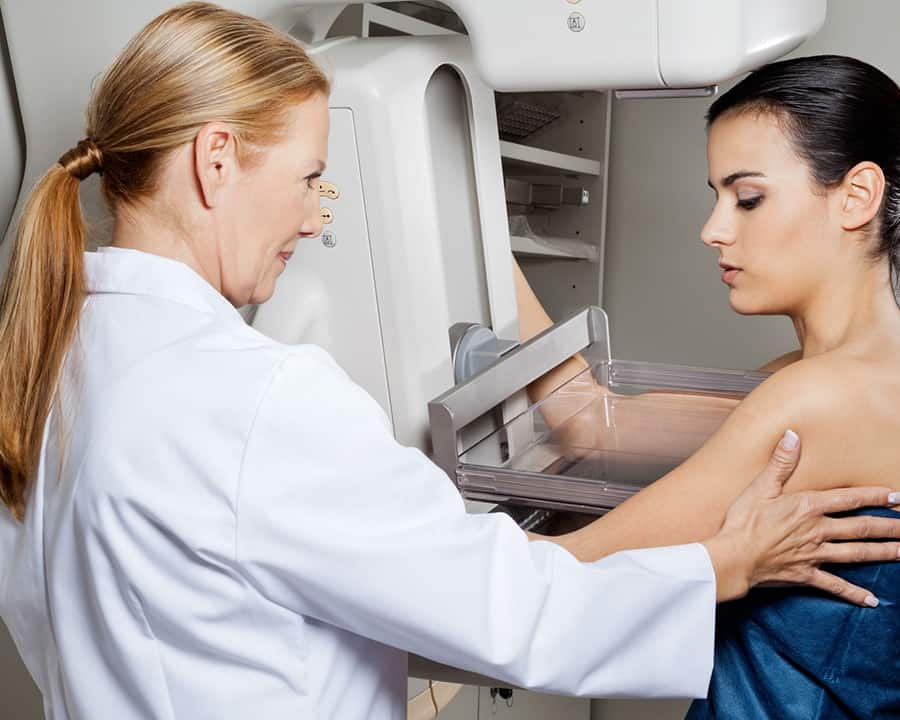Breast cancer rehabilitation is a critical part of your recovery from surgery. It is a tough situation when you or someone close to you has faced breast cancer, and that statement doesn’t even come close to how devastating it can be. On just about every level of your life, from your physical health to your relationships, work, and often most profoundly, your mental health.
Having surgery to remove malignancies in the breasts can be grueling, both mentally and physically – regardless of whether you have a lumpectomy, mastectomy, or full unilateral mastectomy. After the surgery, although the worst may be over, it doesn’t erase the fact that lots of hard work still lies ahead. That’s why the rehabilitation period is incredibly important – not just for recovery but also so that your body and mind are stronger than ever.
But knowing where to start is hard. At the same time, there are steps you can take to equip yourself with the necessary information and support to help in your recovery journey. This blog post shares important tips for recovering well and staying positive.
From engaging with physical therapists after your operation to the various treatments and types of therapies available to help you heal faster – this blog post takes an in-depth look at how physical therapy plays a role in successful breast cancer rehabilitation post-surgery and how physical therapy can be so beneficial if you’re going through breast cancer treatment.
Your body has everything it needs to heal. Remember that. It just requires some care, compassion, and expert guidance to recenter and recover.

Other articles on Nancy Branberg
Physical Therapist Falls Church Virginia
Fit Pregnancy: The Best Home Exercises For Pregnant Women
I’m Getting Headaches Every Day; What Should I Do?
Physical Therapy For Post-Operative Rehabilitation
Physical therapy is one of the most effective ways to aid your post-operative recovery. After undergoing breast cancer surgery, it’s really important to have a proper rehabilitation plan in place to ensure your smooth recovery.
We use various types of physical therapy to suit your needs depending on the type of surgery you have and any after-effects that you may be suffering from. These types of therapy can include exercises to improve your strength and range of motion, manual therapy to ease post-surgical pain and stiffness, and others.
Why Is Physical Therapy So Important For Breast Cancer Patients?
Breast cancer treatment requires perseverance both physically and mentally, that is for sure. Plus, while surgery and cancer treatments such as chemotherapy and radiation are sometimes essential for defeating the disease, they can take a toll on your body. This is where physical therapy comes in. We can’t overstate the importance of physical therapy for breast cancer patients.
Why? Because it provides you with a safe and effective way to rebuild your strength and alleviate any pain caused by the treatments. Physical therapy can also help you regain freedom of movement and enhance your flexibility, which can be extremely beneficial after breast and other surgeries. It can also help reduce post-surgical fatigue and improve physical and emotional well-being. It plays a major role in recovery, allowing you to regain control over your quality of life and physical capabilities.
If you’re going through breast cancer treatment now, we’re here to help. Please get in touch for a confidential and 100% complimentary consultation to discuss how physical therapy can help you recover well – during and after breast cancer treatment and/or surgery.
“What Else Can I Do To Recover Well After Breast Cancer Surgery?”
When recovering from surgery, many people focus solely on rest. However, maintaining a routine that includes (safe) stretching and strengthening exercises can be crucial for a full recovery. Proper stretching and strengthening techniques can help reduce swelling and inflammation, improve the range of motion in your muscles, joints, and connective tissue, and even prevent future injuries.
In most cases, doctors recommend after physical therapy surgery to help guide you through these exercises. But with dedication and commitment – after initially learning them with the support and guidance of a physical therapist, you can also incorporate some of these techniques into your routine outside of your physical therapy sessions. But it’s important to take it slow and listen to your body.
Here are some other things you can do to recover well after breast cancer surgery:
Reduce pain and discomfort with massage therapy: Massage is a great way to relieve pain and discomfort in the body. It involves applying gentle pressure and manipulating the muscles to ease tension and soothe soreness. Massage can promote healing and temporarily relieve various issues, like back pain, headaches, and muscle strains, by reducing inflammation and getting blood flowing to targeted areas.
It is a non-invasive treatment that can provide relief from pain without relying on medication. It also reduces stress and tension and promotes a “rest and repair” state of mind.
Improve balance and coordination with specialized exercises: Major surgeries, chemotherapy, and radiation treatments can sometimes affect your balance, making coordinating your body difficult. Working on improving your balance and coordination with specialized exercises can be helpful. These exercises not only help to prevent falls, but they also enhance your physical health and increase your confidence.
There are numerous ways to improve balance and coordination, from yoga poses to strength-training exercises. Once your doctor clears you to work out again, adding these exercises into your regular workout routine can help build a stronger foundation for your body’s movements, making everyday tasks easier and more efficient.
Learn new ways to manage fatigue related to recovery: Recovery after breast cancer surgery is a journey that requires energy and effort, both physically and mentally. However, fatigue is a common symptom many women face during this process. However, managing this fatigue can become much easier with the right strategies and tools. Learning new ways to minimize exhaustion and maintain energy levels is crucial for a healthy recovery.
From engaging in regular but gentle physical activity and practicing mindfulness to maintaining a balanced diet and adjusting your sleep patterns, various approaches can help you manage fatigue and increase your well-being. Take the time to explore some of these strategies – or contact us for advice.
Take time to rest and recover – balance physical activity with rest periods: Taking time to rest and recover can sometimes seem like a luxury you can’t afford. However, balancing physical activity and rest periods is important to perform at your best. Giving your body and mind time to recuperate can reduce the risk of post-surgical complications, prevent emotional burnout, and improve your resilience and well-being.
You can’t pour from an empty cup. It can be as simple as taking a 15-minute break to stretch or meditate during a busy workday or taking an extra day off from training after a tough workout. By prioritizing rest and recovery, you can enjoy a healthier, more balanced lifestyle – and return to your pre-surgery self much quicker.
Eat a nutrient-dense diet to help your body heal: After surgery, it’s important to prioritize your health and well-being as you recover, especially if you want to aid your breast cancer rehabilitation. One of the best ways to do this is by consuming a nutritious diet that targets the specific needs of your body post-surgery. You are what you eat. Your body requires certain nutrients to heal successfully, so providing it with the necessary fuel is important. A healthy diet – with lots of fiber-rich fruit and vegetables and tissue-building protein can speed up your recovery, reduce inflammation and swelling, and give your body the energy to function properly.

Additional Breast Cancer Rehabilitation Guidelines
Avoid lifting heavy items or pushing yourself too hard too soon: We all want to achieve our goals as soon as possible, but sometimes, pushing too hard can lead to complications and other setbacks. This is especially true when it comes to lifting heavy items after breast cancer surgery. It’s reason enough to go for breast cancer rehabilitation, as it can quite literally force you to go see a physical therapist. Whether moving furniture or carrying boxes, it’s important to remember that overexerting yourself can cause strain.
It’s important to prioritize your health and safety after surgery, no matter how urgent a task may seem. Everything else can wait. So, take it slow and prioritize your recovery.
Join a support group to connect with others going through the same experience: Going through a difficult or life-changing experience like breast cancer can feel isolating at times. While opening up and sharing your struggles with others may seem daunting, joining an online or in-person support group can be a helpful step in your healing process. By connecting with others going through something similar, you find a sense of community and understanding that can be hard to come by elsewhere.
Support groups provide a safe space to share your thoughts and emotions and access valuable resources and advice. Remember, you are not alone; people want to support you through this journey.
Stay in regular contact with your surgeon and follow their instructions for recovery: Following your doctor’s instructions after breast cancer surgery is essential for a speedy recovery. Staying in contact with your doctor also allows any adjustments to your treatment plan. Your health is important; you can ensure optimal results by actively participating in your recovery. But it’s important to remember, too, that healing takes time, and following through with your doctor’s medical advice (even though the process may seem slow) is crucial in returning to your normal, healthy self.
So, stay in touch with your doctor, attend all necessary appointments, and follow their instructions for a smooth and successful recovery.
Find healthy ways to cope with anxiety or depression: The last few years have brought about unprecedented levels of stress and anxiety, leaving many struggling to cope with their emotions. Not to mention adding in a breast cancer diagnosis and surgery. So, if you’re feeling overwhelmed, knowing you’re not alone and that your feelings are normal is important. The good news is that there are healthy ways to manage these feelings and take care of your mental health.
One of the most effective techniques is to practice mindfulness, which involves staying in the present moment and acknowledging your thoughts and emotions without judgment. You can also try deep breathing or yoga to help you relax and reduce stress. Staying in touch with friends, and family and doing activities that bring you pleasure and joy can also be helpful. Remember, mental health is essential to your physical health, especially during and after cancer.


